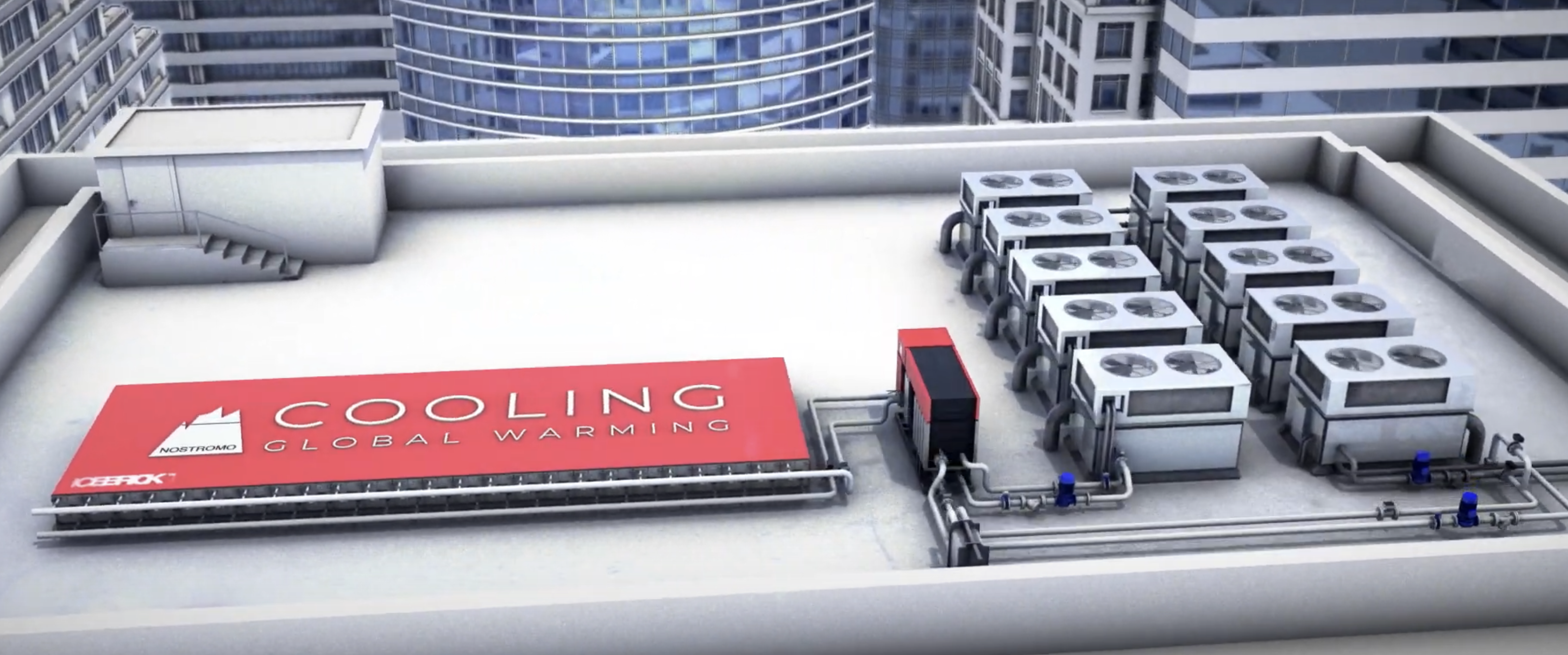The General Services Administration and the U.S. Department of Energy have selected 17 innovative building technologies to evaluate in real-world settings throughout GSA’s real estate portfolio.
This year, field validation will be conducted on five of these technologies that will support commercial buildings decarbonization and the implementation of DOE’s recently released Decarbonizing the U.S. Economy by 2050: A National Blueprint for the Buildings Sector. The technologies include modular ice-based energy storage from Nostromo Energy, a modular cold-climate air-source heat pump from Trane Technologies, an air conditioning system incorporating a liquid desiccant and evaporative cooling from Blue Frontier, a refrigerant life cycle management strategy from êffecterra, and an internet-of-things based building management system from 75F.
The evaluation will consider how well products reduce energy use and greenhouse gas emissions. HVAC in commercial buildings consumes up to 44% of on-site energy, according to a DOE news release.
GSA anticipates that the results of this year’s evaluations will be available in 2026. DOE and GSA have partnered through the same program since 2015. Since 2011, the program has evaluated 107 technologies, 23 of which have been deployed across more than a third of GSA’s federally owned portfolio.
Related Stories
| Jan 26, 2012
Earthquake 'fuse' could save buildings during temblors
The idea is to use an earthquake "fuse" that can prevent the tiny fractures and warps that make structures unsafe after a quake and very expensive to repair.
| Jan 26, 2012
HPD open materials standard for green building materials gains momentum
GreenWizard, provider of a cloud-based product management and project collaboration software, is the latest industry participant to sign on
| Jan 26, 2012
Siemens launches smoke detection knowledge center
New knowledge center web site demonstrates efficacy of smoke detection.
| Jan 18, 2012
Chile's seismic code upgrades credited with saving lives in 2010 quake
Since 1960, when Chile suffered a 9.5 magnitude quake, the largest ever recorded; the country has steadily improved building codes to protect lives and property.
| Jan 18, 2012
Report analyzes residential hurricane codes in 18 states
The Insurance Institute for Business & Home Safety (IBHS) released a new report analyzing residential building codes in 18 hurricane-prone coastal states along the Gulf of Mexico and the Atlantic Coast.
| Jan 18, 2012
Death in Chicago high-rise apartment fire blamed on fire code
The death of a Chicago woman who stepped off her elevator into a blazing inferno last week has underscored the need for fire sensors in elevators.
| Jan 18, 2012
California approves open cell spray foam for energy efficiency standards
The California Energy Commission (CEC) now recognizes open-cell spray foam as an accepted insulation in its 2008 Building Energy Efficiency Standards.
| Jan 5, 2012
Building to LEED standards now an 'easy call' from cost standpoint
Once seen as a cost burden, building to LEED standards is now an "easy call," according to Dan Probst, chairman of energy and sustainability for real estate management and development firm Jones Lang LaSalle.
| Jan 5, 2012
Minnesota's GreenStep Cities program aids communities in winning grants
GreenStep Cities, a Minnesota initiative, was designed to provide greater recognition to the state's communities for achievements in meeting sustainability standards and goals.
| Jan 5, 2012
Some ADA accessibility rules change in 2012
Some changes to the Americans with Disabilities Act go into effect beginning March 15, 2012.

















